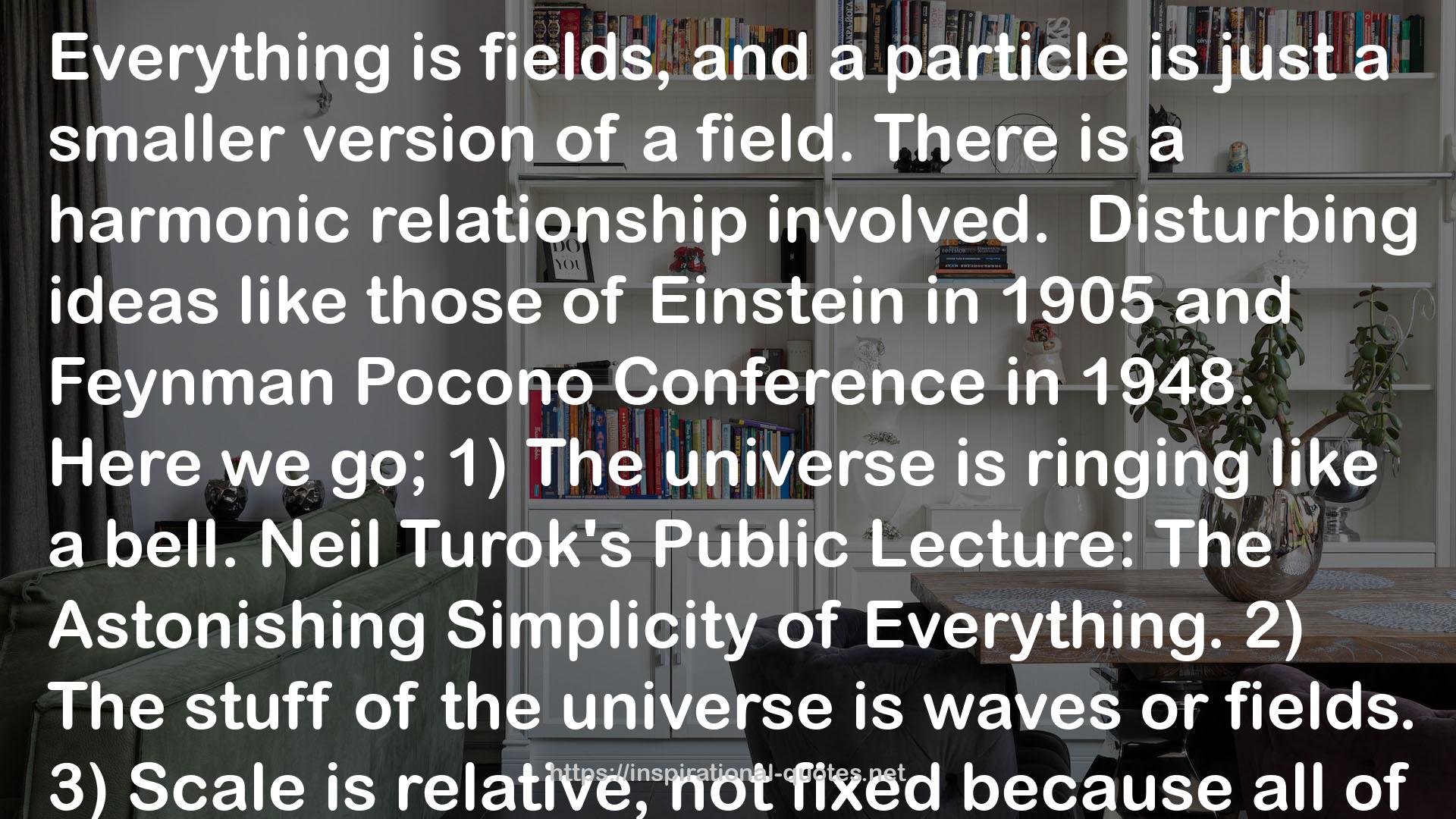smaller QUOTES
101
" Everything is fields, and a particle is just a smaller version of a field.
There is a harmonic relationship involved.
Disturbing ideas like those of Einstein in 1905 and Feynman Pocono Conference in 1948.
Here we go;
1) The universe is ringing like a bell. Neil Turok's Public Lecture: The Astonishing Simplicity of Everything.
2) The stuff of the universe is waves or fields.
3) Scale is relative, not fixed because all of these waves are ratios of one another.
4) The geometry is fractal. This could be physical or computational.
5) If the geometry is computational then, there is no point in speaking about the relationship of the pixels on the display. "
